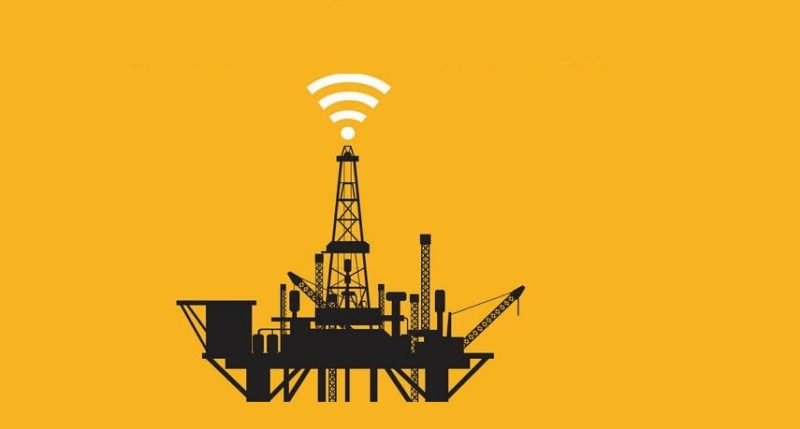Did COVID 19 enhance data as the new oil?

Data in the 21st century is like oil in the 18th century, an immensely valuable untapped asset whose fundamental value and usage will reap huge rewards. In this automated world and digitized economy, data is more valuable than ever and is key for the smooth functioning of governments and companies without which progress will altogether halt. Data is the raw material on which our economies, societies and democracies are increasingly being built on. The Fourth Industrial Revolution practically changes every human activity: the way we communicate and interact with each other, the way we learn, the way we make things, the way we work and the way we use our planet’s resources, making the winner take it all and the losers of the digital transformation facing their personal Waterloo.

The Fourth Industrial Revolution is one of the most fundamental shifts that the world has ever seen and that society has ever dealt with. Technologically savvy manufactures have the opportunity to create a digital twin of the entire manufacturing process and almost halving the production time in a seamless integration of what can be called as the cyber-physical systems. By extracting value from mountains and streams of data that pour into storage repositories from companies around the world and analyzing the trends can make or break businesses. Cloud-based tools such as Business Intelligence and data analytics that help one understand the data available from numerous vendors. Unfortunately, the spread of coronavirus across the world has shown how quickly events can develop and change the course of human activity. From individuals practising social distancing through to supply chains coming under strain to meet countries’ demands, the energy sector is no different. The reduction in oil consumption due to coronavirus has led to a first-half surplus of 1.8bn barrels of crude oil. The volume of available storage for oil production is already running low. Alongside the impact of coronavirus on country economies, there is also the impact on specific production facilities and operations to consider.
Oil rigs have had to develop processes for handling those that have caught the virus, while also protecting their employees that are in place. The appearance of Coronavirus in December 2019 in China and gradual expansion of the epidemic drastically brought down demand and price of the crude oil. Due to the price war between Saudi Arabia and Russia clubbed with Corona effect analysts have already started correcting their own forecasts. Leading investment banks Barclays, Morgan Stanley and Goldman Sachs revised forecast of Brent crude to $31/b, $30/b, and $20/b, respectively. Also, Barclays recalibrated WTI price to $28/b. In India, the demand for fossil fuels except for LPG and domestic natural gas is on the free fall. Consequent to the development, the refiners are forced to cut down their throughput to an extent of 25-30 percent immediately. It is expected that global oil demand may shrink by 15-20 million barrels for a day due to Corona effect including extensive lockdown in the oil-consuming economies.
The negative crude price that has become a global reality might make some oil-exporting nations go bankrupt sooner than later and oil-importing nations like India could recover from the COVID-19 effect earlier than the others. While COVID-19 is presenting and exposing new healthcare challenges, the best way for a business to learning about itself would be to understand its data. The best business is the business that is self-aware and committed to constantly learning more about itself. Sharing, storing and tracking information is difficult in these circumstances, so standardizing on one approach that can be made available to everyone seems advisable because this joined-up approach ultimately improves efficiency and performance whilst saving the business both time and money. As companies seek to understand what their market situation is, getting the right data will be essential. Without accurate, clear and open data, it’s more difficult to make the right decisions.

India boycotted the “Osaka Track” on the digital economy at the G20 leaders’ summit in Osaka last year because it reportedly undermines multilateral negotiating processes based on consensus-based decision-making in global trade negotiations, and denies policy space regarding digital economy to developing countries. Along with India, Indonesia and South Africa also boycotted the Osaka Track as the developing countries have consistently demanded that negotiations on digital economy/e-commerce must be carried out on the basis of the 1998 WTO Work program. India and South Africa insisted on putting their language on the “critical role played by effective use of data, as an enabler of economic growth, development and social well-being. Since data is considered a new form of wealth, the flow of data will be critical to trade as the digital economy grows, and therefore the rule-making must involve all countries. With the COVID global pandemic, the rules are going to change for data flow and the stimulus for the same will lie not just with the leaders and business houses or the governments, but even the common men as their day to day activities will depend on the same. The one thing that mankind will learn coming out from this pandemic will be a Hindu way of life with a tech-savvy approach in dealing with everyday activities regardless of the social strata they belong to. Automated data is here to stay with optimized options for civilization 2.0 because the paraphernalia around this new gold is either going to make or break not just businesses, but also individuals.


















